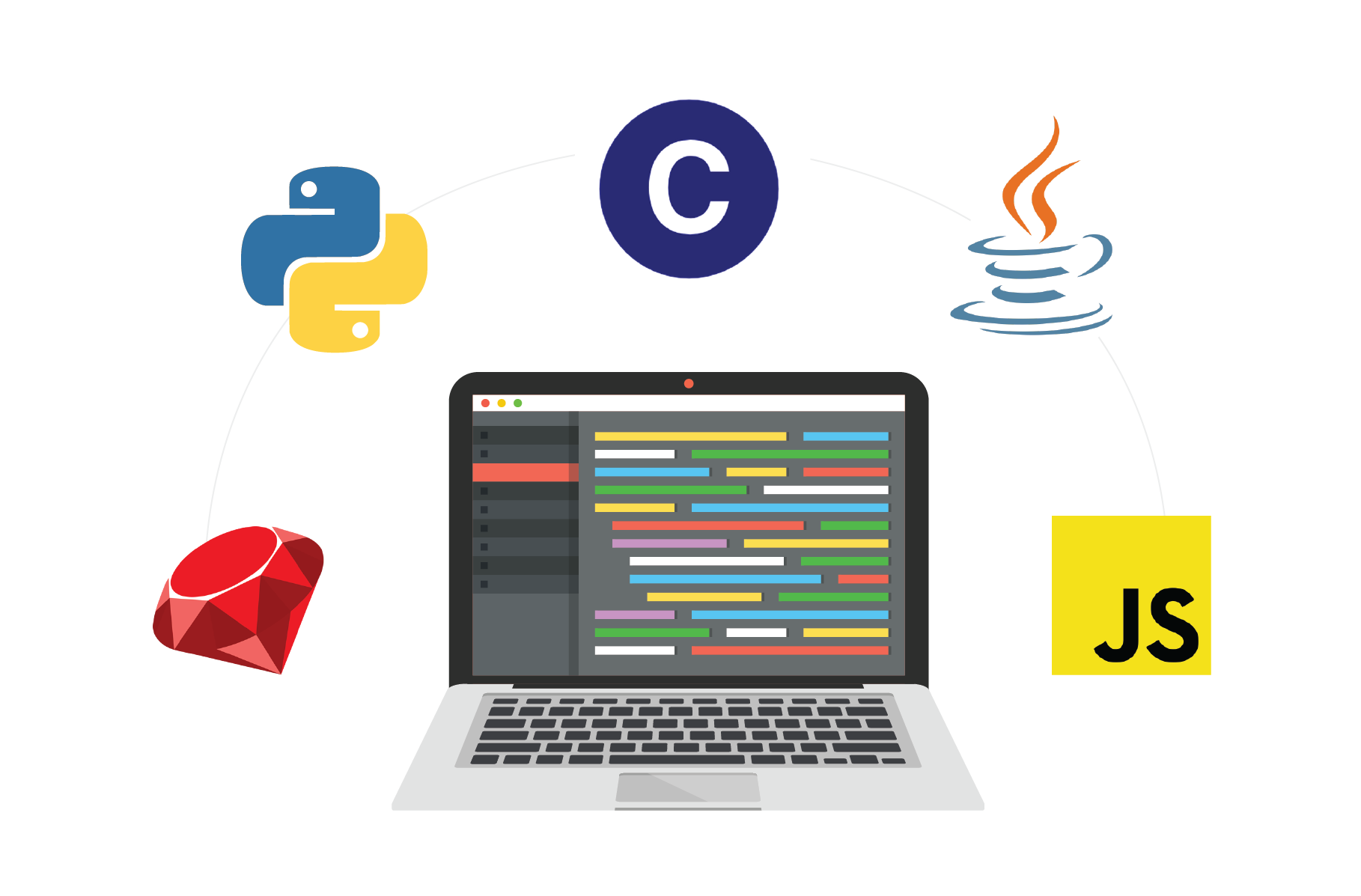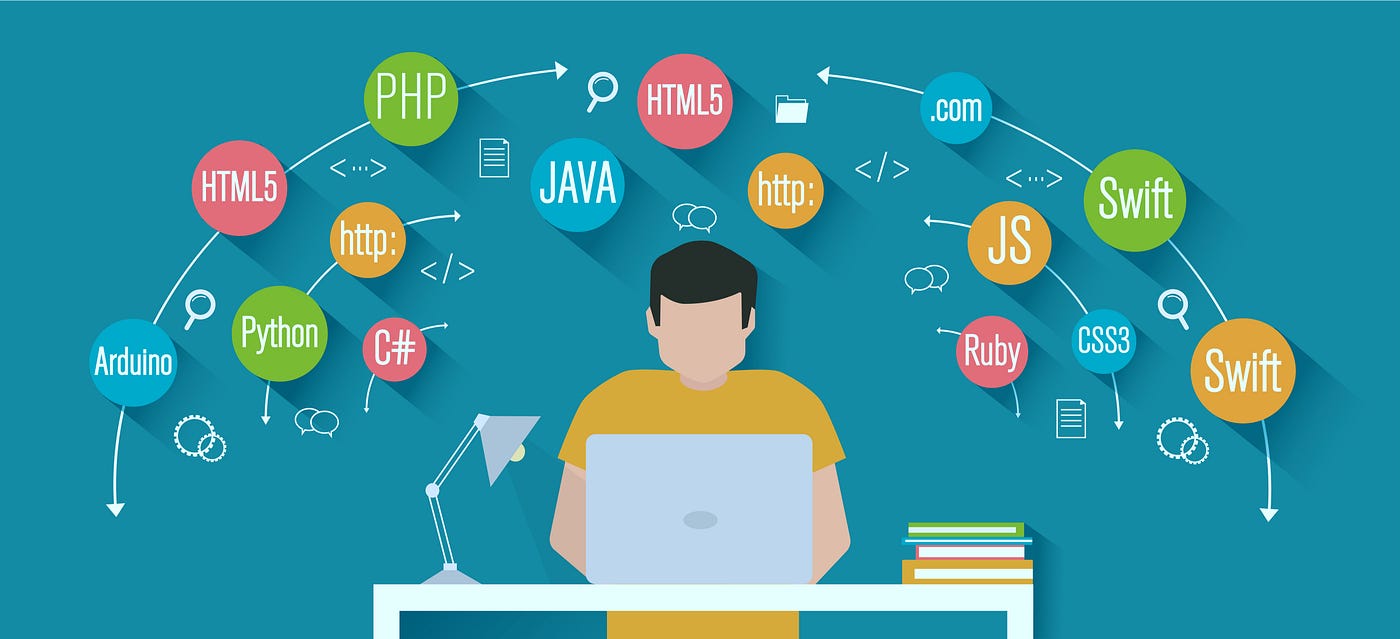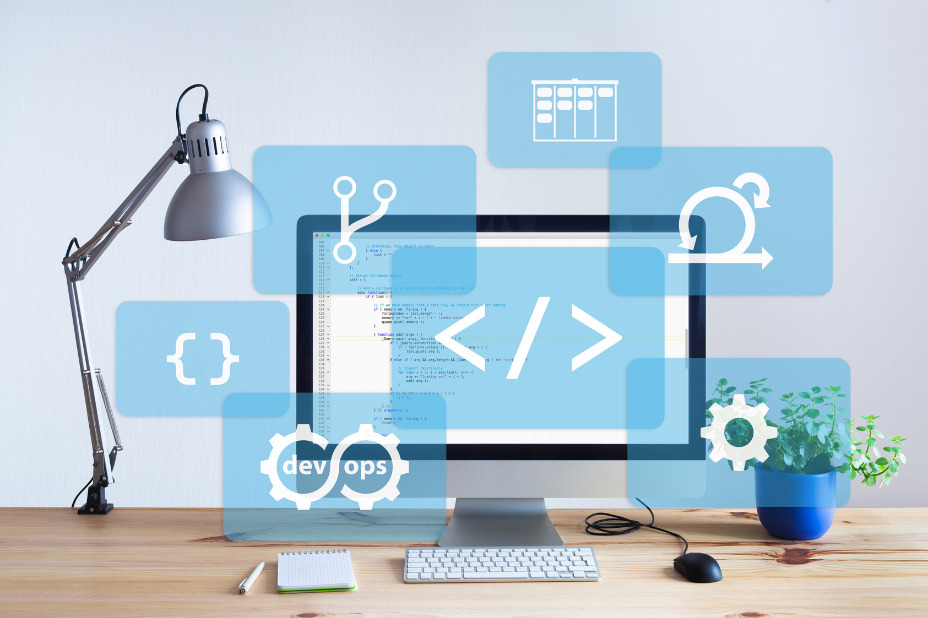
which programming language should i learn. is a vocabulary and set of grammatical rules for instructing a computer or computing device to perform specific tasks. Programming languages vary in complexity, from one-line commands to full-blown programming languages such as C++. Some popular high-level languages are BASIC, COBOL, Java and Pascal; these are easier than low-level languages such as C or FORTRAN that require more detailed syntax.”
A programming language is a vocabulary and set of grammatical rules for instructing a computer or computing device to perform specific tasks.
A programming language is a vocabulary and set of grammatical rules for instructing a computer or computing device to perform specific tasks. Programming languages are used by programmers to create the code that enables software applications to function.
Programming languages can be categorized as high-level or low-level languages. High-level programming languages are generally easier to learn and use than low-level ones; however, some tasks require the use of low-level languages
(e.g., video game programming). Low-level languages tend to be more machine dependent than high level ones, which makes them faster but less portable from one machine architecture to another.
A compiler is a computer program that translates programs written in one language into another language for execution by computers. Compilers convert source code from one form into another form before it can run on an actual computer system
this process converts high level language into machine instructions that can be executed by any processor (or CPU). An interpreter runs a program directly without having to compile it first; this process converts source code into executable instructions immediately prior execution by any processor (or CPU).

which programming language should i learn
The first thing you’ll want to do is pick up a programming book or two, in the language of your choice. This can help you get started learning some of the basic syntax and structure, but there are plenty of great resources online as well that can help too.
Once you’ve got a feel for how programming works, try writing programs on your own! Use an IDE; this will make it easier for you to see where errors are in your code so that they can be fixed before running them.
Once those skills are solidified and memorized, try writing simple games or applications with them (like the classic ‘Hello world’ application). As long as these programs work properly when run through an interpreter/compiler/interpreter (or whatever toolchain), then they’re good enough! If not…well…it’s time to learn more about programming languages!
which programming language should i learn first
When it comes to learning programming languages, you’re not alone. Many people have the same question: which programming language should I learn first?
The answer depends on what you want to do with your code. If you’re interested in writing apps, then you might consider one of the many coding languages that are used for mobile app development. These include Swift (for iOS), Kotlin (for Android), or JavaScript / TypeScript / AngularJS / ReactJS (for web and desktop).
If game development is more your thing, then there’s a wide variety of options available: C++, Java, Python and Ruby all work well for creating games – though some may be better suited than others for specific types of games or platforms like iOS or Android devices.
If economics is what interests you most about computer science research then R would be another good choice since it’s very flexible in terms of data manipulation & analysis tasks so there are many ways how this could help someone with an economics degree interested in learning how computers work from a technical perspective
what coding language should i learn to make games
As the name suggests, GameMaker is a tool for making games. It allows you to create your own games without writing code. You can use it to create 2D games and 3D games (JavaScript).
The first step is to download GameMaker from the official website. After that, install it onto your computer by following the instructions given by the software company. You can find various tutorials online that will help you learn how to use this program correctly and efficiently!
which programming language should i learn for game development
- C++
- C#
- Java
- Python
- Ruby
- PHP If you’re interested in game development, we recommend looking into C++ and C#.

which programming language should i learn for economics
Want to learn a programming language that will help you with economics? You’ve come to the right place. In this article, we’ll discuss C++ and Java, Python, R and SQL as potential programming languages for economics students.
The Economics of Computation: Why We Need to Learn to Code
Computers have become a vital part of our lives, and they’re only going to get more important. As economists, we need to understand how computers work and the implications they have on our lives. We also need to be able to communicate with computer scientists who write the software that drives these machines.
5 coding languages
Popular programming languages
There’s a lot of confusion as to what language you should learn first. Depending on your goals, the answer will change. A good place to start is by familiarizing yourself with these five coding languages:
- C and its derivatives (C++, Objective-C) are popular in systems programming and embedded software development. They’re also used to write low-level code like device drivers or operating systems kernels.
- But they’re not necessarily easy to learn! This is because they don’t have many built-in abstractions like other languages do; instead, you must have a good understanding of how computers work at a lower level before using them effectively.
- Python is often used for web development due its simple syntax that reads almost like English sentences. It’s also commonly used for machine learning projects because it has many libraries for numerical computation built into it along with scientific computing packages like NumPy and SciPy; these make working with data much easier! If this sounds interesting then learning Python might be an excellent choice for you!
- JavaScript was created by Brendan Eich in 1995 but didn’t reach widespread popularity until 2015 when Apple released iphoneOS support (which contains features such as Safari Mobile) which made creating websites easier than ever before thanks to its simplified syntax compared with other languages out there today –

Introduction
The term programming language usually refers to high-level languages, such as BASIC, C, C++, COBOL, Java, FORTRAN, Ada, and Pascal.
You can think of a high-level language as being similar to human languages. For example, when you are learning English, you probably don’t think about how each word is stored in the computer’s memory or exactly what it means. You just learn how to pronounce and spell the words so that other people can understand what you say.
Similarly, computer programmers generally don’t have to know how computers work in order to write code for them. Instead, they simply need an understanding of the basic rules for writing programs and how those rules apply to their particular programming language. This makes it easier for them to write programs than if they had to learn everything about computers first before even starting on their first program!
Each different type of CPU has its own unique machine language which is so complicated that no one person could ever learn all of it by themselves—even if they spent their whole lives studying nothing else but coding! So instead we use high-level languages because these allow us
simply write instructions in English like “add 3 + 5” instead
Each language has a unique set of keywords (words that it understands) and a special syntax for organizing program instructions.
Each programming language has a unique set of keywords (words that it understands) and a special syntax for organizing program instructions. The syntax is a set of rules that describe how to write a program in a particular programming language.
Programming languages differ in the amount of information they expect you to give them at the beginning, the order in which they require this information, and what types of tasks they can do on their own. Some programming languages are designed to be compiled or translated into machine code before running while others allow writing code directly as plain text files (for example, JavaScript).

High-level languages are similar to human languages and are generally easier to learn than machine languages.
High-level languages are similar to human languages and are generally easier to learn than machine languages.
Machine languages, on the other hand, are closer to the actual hardware of your computer. They’re also much harder to learn and write in.
When you program in a high-level language, it’s converted into machine language using a compiler. A compiler is essentially a translator that converts a code written in one programming language into code written another programming language (machine code or bytecode).
An interpreter is another type of converter that translates high level programming language into bytecode/machine code at runtime (as opposed to compile time). The interpreter reads through each line of code as it executes until it reaches its end point before moving onto executing more lines of code on its own accord again.
Each different type of CPU has its own unique machine language.
Each different type of CPU has its own unique machine language. Machine language is a set of instructions that the CPU can understand directly, without going through any other programming language. It’s also called binary code—because it’s made up of 0s and 1s (see below for an example).
Machine languages are very difficult to learn, but understanding how they work can help you when you start looking at more complicated programming languages like C++ or JavaScript.
Since computers
Computers are very dumb, and a computer programmer must write instructions that are very simple and very detailed so that the computer can understand them. Programming languages are designed to be as simple as possible in order for computers to understand them.
A programming language is different from a markup language because it’s not really about telling the computer what you want it to do—it’s about telling the computer how to do something itself.
There are many different types of programming languages, each with its own strengths and weaknesses.

Even though assembly languages
Assembly languages are not as easy to learn as high-level languages, but they are still easier to learn than machine languages. A compiler is a program that reads source code and converts it into object code.
A compiler is a program that reads source code and converts it into machine code.
An interpreter is a program that reads an executable program one statement at a time and carries out the desired action.
An interpreter is a program that reads an executable program one statement at a time and carries out the desired action.
The interpreter reads the source code line by line, executes each statement and then moves on to the next one. An interpreter is similar to a compiler in that it takes high-level source code and converts it into object code (a series of machine language instructions).
However, unlike a compiler, which produces an actual executable file as its output, an interpreter doesn’t produce any such file at all; instead, it produces byte code—a set of instructions which will be translated into machine language instructions during runtime (that is, while running on a real computer).
This can have advantages: interpreters are often faster than compilers because they don’t have to go through all the “macho stuff” like making sure that everything is spelled correctly or dealing with various platforms and operating systems.
An interpreter is similar to a compiler in that it takes high-level source code and converts it into object code.
An interpreter is similar to a compiler in that it takes high-level source code and converts it into object code. However, an interpreter doesn’t produce an actual executable file as its output; rather, it produces byte code that gets translated into machine code in real time.
In this case, “object code” refers to machine language (or something close enough). Machine language is literally all of the 1s and 0s that your computer understands at the hardware level. A compiler translates high-level source code (like C++ or Java) into object code for you before running it; this step is called compilation.
An interpreter translates the source code directly as you go along, so no compiling is necessary—that’s why we’re talking about interpreters instead of compilers here!
The distinction between high-level languages and assembly languages can be confusing: they’re both considered “high level,” but assembly languages are closer to machine language than higher-level languages like C/C++ or Python are.
That means they require less work from your CPU when running programs written in them because there isn’t much abstraction involved (you can think of them as closer to English than Japanese).
Conclusion
We hope this article helped you learn more about programming languages and their uses.
Read More: Best programming language to learn 2022








